AND NOW had come the morning when fair Ellen was to be married, and on which merry Robin had sworn that Allan a Dale should, as it were, eat out of the platter that had been filled for Sir Stephen of Trent. Up rose Robin Hood, blithe and gay, up rose his merry men one and all, and up rose last of all stout Friar Tuck, winking the smart of sleep from out his eyes. Then, while the air seemed to brim over with the song of many birds, all blended together and all joying in the misty morn, each man raved face and hands in the leaping brook, and so the day began.
“Now,” quoth Robin, when they had broken their fast, and each man had eaten his fill, “it is time for us to set forth upon the undertaking that we have in hand for today. I will choose me one score of my good men to go with me, for I may need aid; and thou, Will Scarlet, wilt abide here and be the chief while I am gone.” Then searching through all the band, each man of whom crowded forward eager to be chosen, Robin called such as he wished by name, until he had a score of stout fellows, the very flower of his yeomanrie. Besides Little John and Will Stutely were nigh all those famous lads of whom I have already told you. Then, while those so chosen ran leaping, full of joy, to arm themselves with bow and shaft and broadsword, Robin Hood stepped aside into the covert, and there donned a gay, beribboned coat such as might have been worn by some strolling minstrel, and slung a harp across his shoulder, the better to carry out that part.
All the band stared and many laughed, for never had they seen their master in such a fantastic guise before.
“Truly,” quoth Robin, holding up his arms and looking down at himself, “I do think it be somewhat of a gay, gaudy, grasshopper dress; but it is a pretty thing for all that, and doth not ill befit the turn of my looks, albeit I wear it but for the nonce. But stay, Little John, here are two bags that I would have thee carry in thy pouch for the sake of safekeeping. I can ill care for them myself beneath this motley.”
“Why, master,” quoth Little John, taking the bags and weighing them in his hand, “here is the chink of gold.”
“Well, what an there be,” said Robin, “it is mine own coin and the band is none the worse for what is there. Come, busk ye, lads,” and he turned quickly away. “Get ye ready straightway.” Then gathering the score together in a close rank, in the midst of which were Allan a Dale and Friar Tuck, he led them forth upon their way from the forest shades.
So they walked on for a long time till they had come out of Sherwood and to the vale of Rotherstream. Here were different sights from what one saw in the forest; hedgerows, broad fields of barley corn, pasture lands rolling upward till they met the sky and all dotted over with flocks of white sheep, hayfields whence came the odor of new-mown hay that lay in smooth swathes over which skimmed the swifts in rapid flight; such they saw, and different was it, I wot, from the tangled depths of the sweet woodlands, but full as fair. Thus Robin led his band, walking blithely with chest thrown out and head thrown back, snuffing the odors of the gentle breeze that came drifting from over the hayfields.
“Truly,” quoth he, “the dear world is as fair here as in the woodland shades. Who calls it a vale of tears? Methinks it is but the darkness in our minds that bringeth gloom to the world. For what sayeth that merry song thou singest, Little John? Is it not thus?
| “ For when my love’s eyes do thine, do thine, And when her lips smile so rare, The day it is jocund and fine, so fine, Though let it be wet or be fair And when the stout ale is all flowing so fast, Our sorrows and troubles are things of the past.” |
“Nay,” said Friar Tuck piously, “ye do think of profane things and of nought else; yet, truly, there be better safeguards against care and woe than ale drinking and bright eyes, to wit, fasting and meditation. Look upon me, have I the likeness of a sorrowful man?”
At this a great shout of laughter went up from all around, for the night before the stout Friar had emptied twice as many canakins of ale as any one of all the merry men.
“Truly,” quoth Robin, when he could speak for laughter, “I should say that thy sorrows were about equal to thy goodliness.”
So they stepped along, talking, singing, jesting, and laughing, until they had come to a certain little church that belonged to the great estates owned by the rich Priory of Emmet. Here it was that fair Ellen was to be married on that morn, and here was the spot toward which the yeomen had pointed their toes. On the other side of the road from where the church stood with waving fields of barley around, ran a stone wall along the roadside. Over the wall from the highway was a fringe of young trees and bushes, and here and there the wall itself was covered by a mass of blossoming woodbine that filled all the warm air far and near with its sweet summer odor. Then straightway the yeomen leaped over the wall, alighting on the tall soft grass upon the other side, frightening a flock of sheep that lay there in the shade so that they scampered away in all directions. Here was a sweet cool shadow both from the wall and from the fair young trees and bushes, and here sat the yeomen down, and glad enough they were to rest after their long tramp of the morning.
“Now,” quoth Robin, “I would have one of you watch and tell me when he sees anyone coming to the church, and the one I choose shall be young David of Doncaster. So get thee upon the wall, David, and hide beneath the woodbine so as to keep watch.”
Accordingly young David did as he was bidden, the others stretching themselves at length upon the grass, some talking together and others sleeping. Then all was quiet save only for the low voices of those that talked together, and for Allan’s restless footsteps pacing up and down, for his soul was so full of disturbance that he could not stand still, and saving, also, for the mellow snoring of Friar Tuck, who enjoyed his sleep with a noise as of one sawing soft wood very slowly. Robin lay upon his back and gazed aloft into the leaves of the trees, his thought leagues away, and so a long time passed.
Then up spoke Robin, “Now tell us, young David of Doncaster, what dost thou see?”
Then David answered, “I see the white clouds floating and I feel the wind a-blowing and three black crows are flying over the wold; but nought else do I see, good master.”
So silence fell again and another time passed, broken only as I have said, till Robin, growing impatient, spake again. “Now tell me, young David, what dost thou see by this?”
And David answered, “I see the windmills swinging and three tall poplar trees swaying against the sky, and a flock of fieldfares are flying over the hill; but nought else do I see, good master.”
So another time passed, till at last Robin asked young David once more what he saw; and David said, “I hear the cuckoo singing, and I see how the wind makes waves in the barley field; and now over the hill to the church cometh an old friar, and in his hands he carries a great bunch of keys; and lo! Now he cometh to the church door.”
Then up rose Robin Hood and shook Friar Tuck by the shoulder. “Come, rouse thee, holy man!” cried he; whereupon, with much grunting, the stout Tuck got to his feet. “Marry, bestir thyself,” quoth Robin, “for yonder, in the church door, is one of thy cloth. Go thou and talk to him, and so get thyself into the church, that thou mayst be there when thou art wanted; meantime, Little John, Will Stutely, and I will follow thee anon.”
So Friar Tuck clambered over the wall, crossed the road, and came to the church, where the old friar was still laboring with the great key, the lock being somewhat rusty and he somewhat old and feeble.
“Hilloa, brother,” quoth Tuck, “let me aid thee.” So saying, he took the key from the other’s hand and quickly opened the door with a turn of it.
“Who art thou, good brother?” asked the old friar, in a high, wheezing voice. “Whence comest thou, and whither art thou going?” And he winked and blinked at stout Friar Tuck like an owl at the sun.
“Thus do I answer thy questions, brother,” said the other. “My name is Tuck, and I go no farther than this spot, if thou wilt haply but let me stay while this same wedding is going forward. I come from Fountain Dale and, in truth, am a certain poor hermit, as one may say, for I live in a cell beside the fountain blessed by that holy Saint Ethelrada. But, if I understand aught, there is to be a gay wedding here today; so, if thou mindest not, I would fain rest me in the cool shade within, for I would like to see this fine sight.”
“Truly, thou art welcome, brother,” said the old man, leading the way within. Meantime, Robin Hood, in his guise of harper, together with Little John and Will Stutely, had come to the church. Robin sat him down on a bench beside the door, but Little John, carrying the two bags of gold, went within, as did Will Stutely.
So Robin sat by the door, looking up the road and down the road to see who might come, till, after a time, he saw six horsemen come riding sedately and slowly, as became them, for they were churchmen in high orders. Then, when they had come nearer, Robin saw who they were, and knew them. The first was the Bishop of Hereford, and a fine figure he cut, I wot. His vestments were of the richest silk, and around his neck was a fair chain of beaten gold. The cap that hid his tonsure was of black velvet, and around the edges of it were rows of jewels that flashed in the sunlight, each stone being set in gold. His hose were of flame-colored silk, and his shoes of black velvet, the long, pointed toes being turned up and fastened to his knees, and on either instep was embroidered a cross in gold thread. Beside the Bishop rode the Prior of Emmet upon a mincing palfrey. Rich were his clothes also, but not so gay as the stout Bishop’s. Behind these were two of the higher brethren of Emmet, and behind these again two retainers belonging to the Bishop; for the Lord Bishop of Hereford strove to be as like the great barons as was in the power of one in holy orders.
When Robin saw this train drawing near, with flash of jewels and silk and jingle of silver bells on the trappings of the nags, he looked sourly upon them. Quoth he to himself, “Yon Bishop is overgaudy for a holy man. I do wonder whether his patron, who, methinks, was Saint Thomas, was given to wearing golden chains about his neck, silk clothing upon his body, and pointed shoes upon his feet; the money for all of which, God wot, hath been wrung from the sweat of poor tenants. Bishop, Bishop, thy pride may have a fall ere thou wottest of it.”
So the holy men came to the church; the Bishop and the Prior jesting and laughing between themselves about certain fair dames, their words more befitting the lips of laymen, methinks, than holy clerks. Then they dismounted, and the Bishop, looking around, presently caught sight of Robin standing in the doorway. “Hilloa, good fellow,” quoth he in a jovial voice, “who art thou that struttest in such gay feathers?”
“A harper am I from the north country,” quoth Robin, “and I can touch the strings, I wot, as never another man in all merry England can do. Truly, good Lord Bishop, many a knight and burgher, clerk and layman, have danced to my music, willy-nilly, and most times greatly against their will; such is the magic of my harping. Now this day, my Lord Bishop, if I may play at this wedding, I do promise that I will cause the fair bride to love the man she marries with a love that shall last as long as that twain shall live together.”
“Ha! is it so?” cried the Bishop. “Meanest thou this in sooth?” And he looked keenly at Robin, who gazed boldly back again into his eyes. “Now, if thou wilt cause this maiden (who hath verily bewitched my poor cousin Stephen) thus to love the man she is to marry, as thou sayst thou canst, I will give thee whatsoever thou wilt ask me in due measure. Let me have a taste of thy skill, fellow.”
“Nay,” quoth Robin, “my music cometh not without I choose, even at a lord bishop’s bidding. In sooth, I will not play until the bride and bridegroom come.”
“Now, thou art a saucy varlet to speak so to my crest,” quoth the Bishop, frowning on Robin. “Yet, I must needs bear with thee. Look, Prior, hither cometh our cousin Sir Stephen, and his ladylove.”
And now, around the bend of the highroad, came others, riding upon horses. The first of all was a tall, thin man, of knightly bearing, dressed all in black silk, with a black velvet cap upon his head, turned up with scarlet. Robin looked, and had no doubt that this was Sir Stephen, both because of his knightly carriage and of his gray hairs. Beside him rode a stout Saxon franklin, Ellen’s father, Edward of Deirwold; behind those two came a litter borne by two horses, and therein was a maiden whom Robin knew must be Ellen. Behind this litter rode six men-at-arms, the sunlight flashing on their steel caps as they came jingling up the dusty road.
So these also came to the church, and there Sir Stephen leaped from his horse and, coming to the litter, handed fair Ellen out therefrom. Then Robin Hood looked at her, and could wonder no longer how it came about that so proud a knight as Sir Stephen of Trent wished to marry a common franklin’s daughter; nor did he wonder that no ado was made about the matter, for she was the fairest maiden that ever he had beheld. Now, however, she was all pale and drooping, like a fair white lily snapped at the stem; and so, with bent head and sorrowful look, she went within the church, Sir Stephen leading her by the hand.
“Why dost thou not play, fellow?” quoth the Bishop, looking sternly at Robin.
“Marry,” said Robin calmly, “I will play in greater wise than Your Lordship thinks, but not till the right time hath come.”
Said the Bishop to himself, while he looked grimly at Robin, “When this wedding is gone by I will have this fellow well whipped for his saucy tongue and bold speech.”
And now fair Ellen and Sir Stephen stood before the altar, and the Bishop himself came in his robes and opened his book, whereat fair Ellen looked up and about her in bitter despair, like the fawn that finds the hounds on her haunch. Then, in all his fluttering tags and ribbons of red and yellow, Robin Hood strode forward. Three steps he took from the pillar whereby he leaned, and stood between the bride and bridegroom.
“Let me look upon this lass,” he said in a loud voice. “Why, how now! What have we here? Here be lilies in the cheeks, and not roses such as befit a bonny bride. This is no fit wedding. Thou, Sir Knight, so old, and she so young, and thou thinkest to make her thy wife? I tell thee it may not be, for thou art not her own true love.”
At this all stood amazed, and knew not where to look nor what to think or say, for they were all bewildered with the happening; so, while everyone looked at Robin as though they had been changed to stone, he clapped his bugle horn to his lips and blew three blasts so loud and clear, they echoed from floor to rafter as though they were sounded by the trump of doom. Then straightway Little John and Will Stutely came leaping and stood upon either side of Robin Hood, and quickly drew their broadswords, the while a mighty voice rolled over the heads of all, “Here be I, good master, when thou wantest me”; for it was Friar Tuck that so called from the organ loft.
And now all was hubbub and noise. Stout Edward strode forward raging, and would have seized his daughter to drag her away, but Little John stepped between and thrust him back. “Stand back, old man,” said he, “thou art a hobbled horse this day.”
“Down with the villains!” cried Sir Stephen, and felt for his sword, but it hung not beside him on his wedding day.
Then the men-at-arms drew their swords, and it seemed like that blood would wet the stones; but suddenly came a bustle at the door and loud voices, steel flashed in the light, and the crash of blows sounded. The men-at-arms fell back, and up the aisle came leaping eighteen stout yeomen all clad in Lincoln green, with Allan a Dale at their head. In his hand he bore Robin Hood’s good stout trusty bow of yew, and this he gave to him, kneeling the while upon one knee.
Then up spake Edward of Deirwold in a deep voice of anger, “Is it thou, Allan a Dale, that hath bred all this coil in a church?”
“Nay,” quoth merry Robin, “that have I done, and I care not who knoweth it, for my name is Robin Hood.”
At this name a sudden silence fell. The Prior of Emmet and those that belonged to him gathered together like a flock of frightened sheep when the scent of the wolf is nigh, while the Bishop of Hereford, laying aside his book, crossed himself devoutly. “Now Heaven keep us this day,” said he, “from that evil man!”
“Nay,” quoth Robin, “I mean you no harm; but here is fair Ellen’s betrothed husband, and she shall marry him or pain will be bred to some of you.”
Then up spake stout Edward in a loud and angry voice, “Now I say nay! I am her father, and she shall marry Sir Stephen and none other.”
Now all this time, while everything was in turmoil about him, Sir Stephen had been standing in proud and scornful silence. “Nay, fellow,” said he coldly, “thou mayst take thy daughter back again; I would not marry her after this day’s doings could I gain all merry England thereby. I tell thee plainly, I loved thy daughter, old as I am, and would have taken her up like a jewel from the sty, yet, truly, I knew not that she did love this fellow, and was beloved by him. Maiden, if thou dost rather choose a beggarly minstrel than a high-born knight, take thy choice. I do feel it shame that I should thus stand talking amid this herd, and so I will leave you.” Thus saying, he turned and, gathering his men about him, walked proudly down the aisle. Then all the yeomen were silenced by the scorn of his words. Only Friar Tuck leaned over the edge of the choir loft and called out to him ere he had gone, “Good den, Sir Knight. Thou wottest old bones must alway make room for young blood.” Sir Stephen neither answered nor looked up, but passed out from the church as though he had heard nought, his men following him.
Then the Bishop of Hereford spoke hastily, “I, too, have no business here, and so will depart.” And he made as though he would go. But Robin Hood laid hold of his clothes and held him. “Stay, my Lord Bishop,” said he, “I have yet somewhat to say to thee.” The Bishop’s face fell, but he stayed as Robin bade him, for he saw he could not go.
Then Robin Hood turned to stout Edward of Deirwold, and said he, “Give thy blessing on thy daughter’s marriage to this yeoman, and all will be well. Little John, give me the bags of gold. Look, farmer. Here are two hundred bright golden angels; give thy blessing, as I say, and I will count them out to thee as thy daughter’s dower. Give not thy blessing, and she shall be married all the same, but not so much as a cracked farthing shall cross thy palm. Choose.”
Then Edward looked upon the ground with bent brows, turning the matter over and over in his mind; but he was a shrewd man and one, withal, that made the best use of a cracked pipkin; so at last he looked up and said, but in no joyous tone, “If the wench will go her own gait, let her go. I had thought to make a lady of her; yet if she chooses to be what she is like to be, I have nought to do with her henceforth. Ne’ertheless I will give her my blessing when she is duly wedded.”
“It may not be,” spake up one of those of Emmet. “The banns have not been duly published, neither is there any priest here to marry them.”
“How sayst thou?” roared Tuck from the choir loft. “No priest? Marry, here stands as holy a man as thou art, any day of the week, a clerk in orders, I would have thee know. As for the question of banns, stumble not over that straw, brother, for I will publish them.” So saying, he called the banns; and, says the old ballad, lest three times should not be enough, he published them nine times o’er. Then straightway he came down from the loft and forthwith performed the marriage service; and so Allan and Ellen were duly wedded.
And now Robin counted out two hundred golden angels to Edward of Deirwold, and he, upon his part, gave his blessing, yet not, I wot, as though he meant it with overmuch good will. Then the stout yeomen crowded around and grasped Allan’s palm, and he, holding Ellen’s hand within his own, looked about him all dizzy with his happiness.
Then at last jolly Robin turned to the Bishop of Hereford, who had been looking on at all that passed with a grim look. “My Lord Bishop,” quoth he, “thou mayst bring to thy mind that thou didst promise me that did I play in such wise as to cause this fair lass to love her husband, thou wouldst give me whatsoever I asked in reason. I have played my play, and she loveth her husband, which she would not have done but for me; so now fulfill thy promise. Thou hast upon thee that which, methinks, thou wouldst be the better without; therefore, I prythee, give me that golden chain that hangeth about thy neck as a wedding present for this fair bride.”
Then the Bishop’s cheeks grew red with rage and his eyes flashed. He looked at Robin with a fell look, but saw that in the yeoman’s face which bade him pause. Then slowly he took the chain from about his neck and handed it to Robin, who flung it over Ellen’s head so that it hung glittering about her shoulders. Then said merry Robin, “I thank thee, on the bride’s part, for thy handsome gift, and truly thou thyself art more seemly without it. Now, shouldst thou ever come nigh to Sherwood I much hope that I shall give thee there such a feast as thou hast ne’er had in all thy life before.”
“May Heaven forfend!” cried the Bishop earnestly; for he knew right well what manner of feast it was that Robin Hood gave his guests in Sherwood Forest.
But now Robin Hood gathered his men together, and, with Allan and his young bride in their midst, they all turned their footsteps toward the woodlands. On the way thither Friar Tuck came close to Robin and plucked him by the sleeve. “Thou dost lead a merry life, good master,” quoth he, “but dost thou not think that it would be for the welfare of all your souls to have a good stout chaplain, such as I, to oversee holy matters? Truly, I do love this life mightily.” At this merry Robin Hood laughed amain, and bade him stay and become one of their band if he wished.
That night there was such a feast held in the greenwood as Nottinghamshire never saw before. To that feast you and I were not bidden, and pity it is that we were not; so, lest we should both feel the matter the more keenly, I will say no more about it.


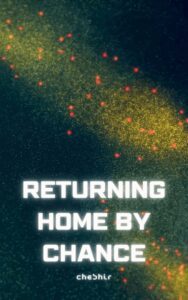
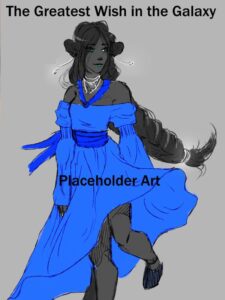
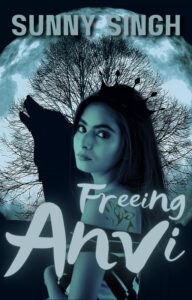
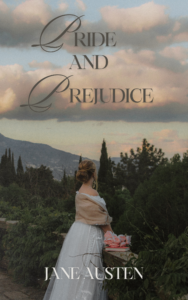
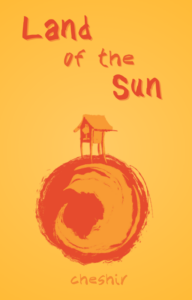
Little Women
Ongoing